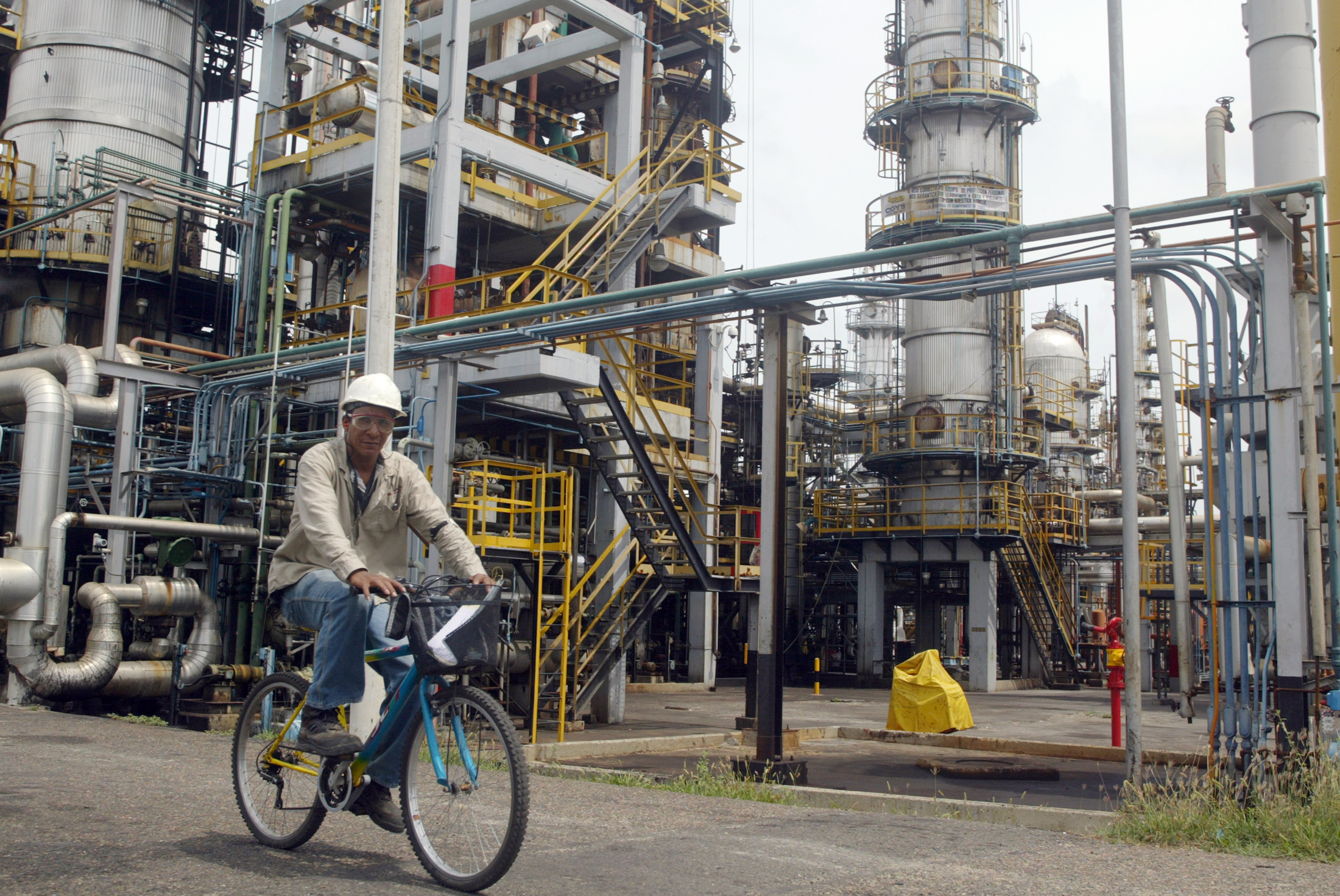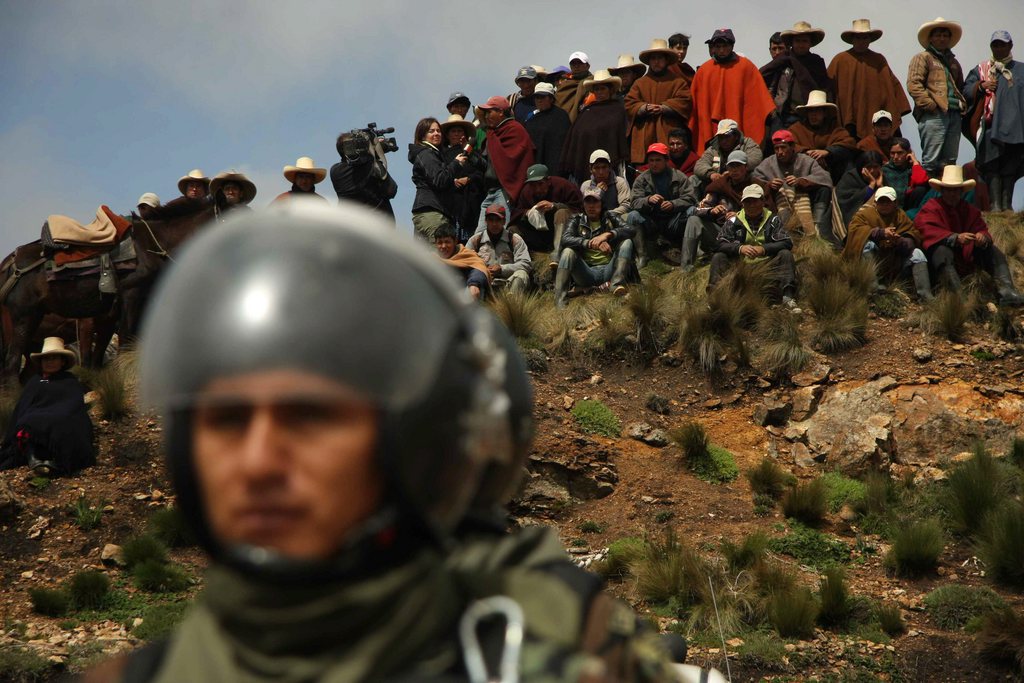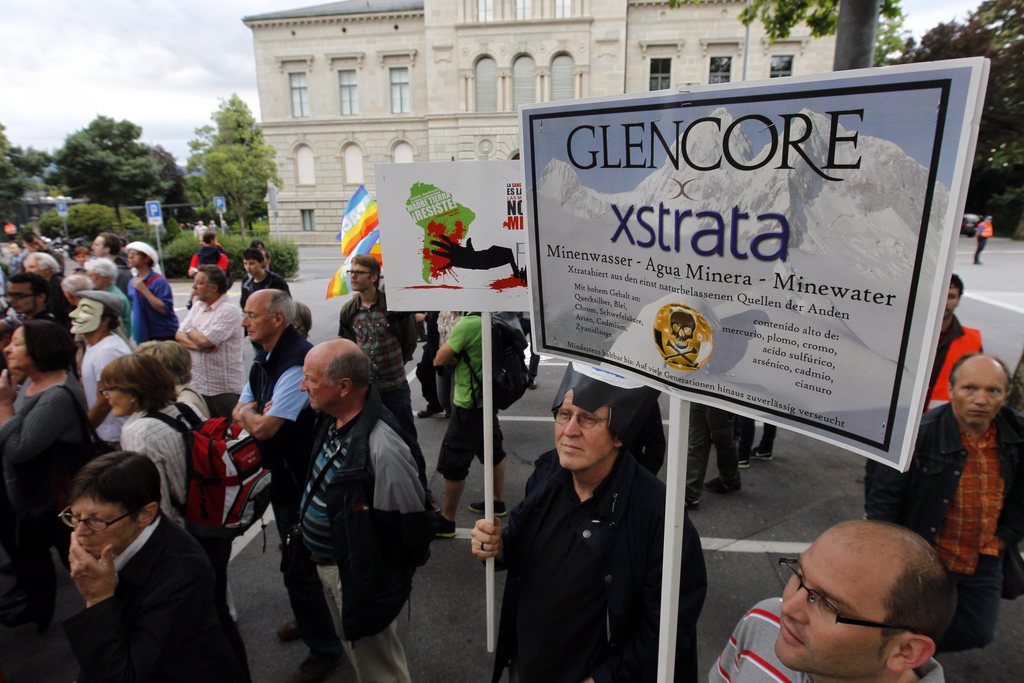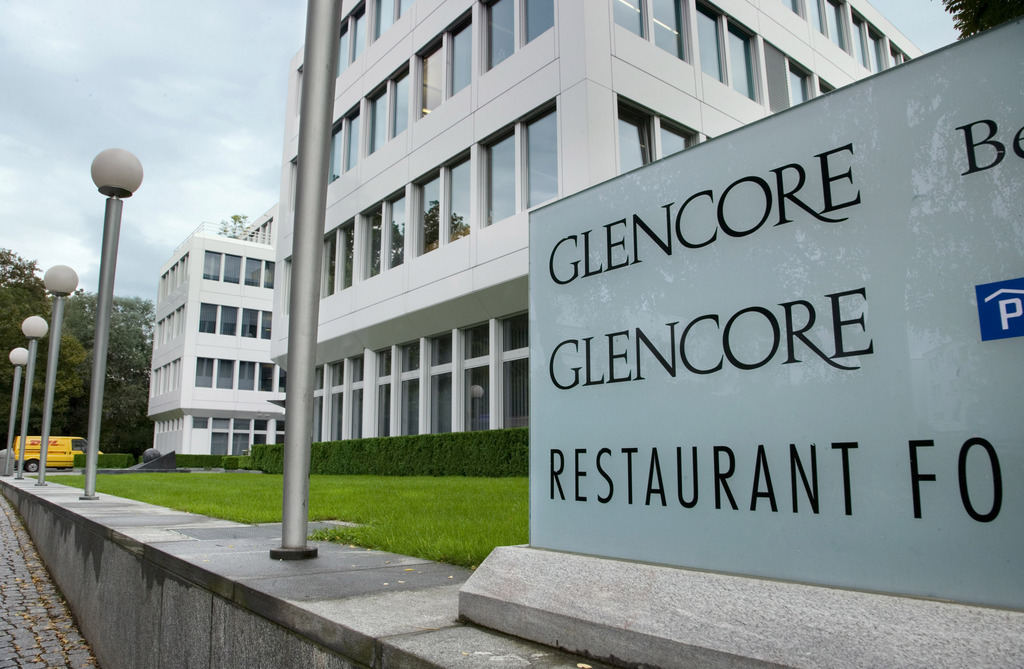Villagers give Glencore tax to affected nations

Residents of villages in canton Zurich have put morals before money by voting to return tax windfalls from commodities giant Glencore to the countries where they were generated, such as the Democratic Republic of the Congo or Colombia.
In the small village of Hausen am Albis, home to 3,300 people, a shout of joy and loud applause greeted the result of a vote in early December – residents had just accepted an initiative to give part of the tax windfall indirectly generated by Glencore to development aid projects abroad.
Hausen am Albis was the second commune in canton Zurich to take such a decision, hailed by supporters as “non-conventional and courageous”, and derided by opponents as “detrimental and dangerous”.
Over the following days, three other villages did the same. “Five to one against Glencore,” was the headline in some Zurich newspapers. A total of CHF448,000 ($505,000) has thus been given to development projects abroad.
Few observers could have predicted the sudden notoriety of the so-called “pig district” – Säuliamt” in German – home to the bucolic hills of Affoltern am Albis and a neighbour to cantons Aargau and Zug. Glencore, which posted a turnover of $214.5 billion (CHF191.4 billion) in 2012 and in April this year merged with Xstrata, is based in the commune of Baar not far from the city of Zug.
Although the company’s headquarters are in canton Zug, Chief Executive Officer Ivan Glasenberg lives 20 kilometres away in Rüschlikon in canton Zurich. So that is where the South African declares his personal income and fortune.
In 2011, when Glencore was floated on the stock exchange, Glasenberg, who owned 20% of the capital, earned a tidy sum of several billion dollars. His local commune therefore saw its tax revenues rise by CHF360 million. Of this, some CHF165 million were immediately redistributed to the canton’s most disadvantaged communes via a special fund.
Glencore’s counter attack
In Switzerland and elsewhere, non-government organisations accuse GlencoreXstrata of human rights abuses and environmental damage in its relentless pursuit of raw materials. In late 2012, several groups formed in Zurich towns with the aim of refusing to accept Glencore’s tax money. Initiatives calling for the attribution of 10% of the tax surplus generated by such organisations to be redirected to development aid projects gained enough signatures in six communes of the normally politically conservative Säuliamt and resulted in the popular votes.
The commune of Hedingen created a surprise on September 22 when it accepted the initiative and decided to transfer CHF110,000 to organisations such as Swiss Interchurch Aid and Helvetas which are active in DRC, Colombia and Bolivia. Normally communications-shy, GlencoreXstrata took part in the local debate, with Glasenberg writing to those behind the popular initiative to express his opinion – viewed by many observers as a “charm offensive”.
“Citizens must be able to make decisions in full knowledge of the case, which is why we presented the facts, notably to explain our code of conduct to them,” Glencore spokesperson Charles Watenphul told swissinfo.ch. According to the multinational, its presence in the countries where it is active is, on the whole, beneficial to the local populations.
Right out of luck
In Hausen am Albis, the local chapter of the rightwing Swiss People’s Party, which commands 33% of the local vote, distributed strongly-worded leaflets against the initiative that called for the donation of CHF75,000 to two projects in Colombia and the DRC. The party’s executive also opposed the initiative.
The municipal council argued in favour of keeping the money due to financial difficulties experienced by the commune, which was already being forced to raise taxes. In addition, the council argued that development aid was the responsibility of federal authorities, not the communes.
During the debate that preceded the vote, some – rare – speakers argued against the initiative, warning of setting a “precedent”.
“Should we also question the CHF200,000 we get in dividends from Zurich cantonal bank, which is in trouble with the American justice system?” demanded one citizen.
Canton Zug is one of the richest cantons in Switzerland and is home to the multinational mining company GlencoreXstrata which is based in Baar. The profits that flowed from the 2011 stock market float have not yet prompted a huge debate.
The Greens plan to launch initiatives in the Zug parliament and in the legislative assembly of Baar on December 10 via the intervention of Swiss Young Greens co-president, Andreas Lustenberger.
“It’s difficult to estimate how much the stock market float brought in to the canton in terms of tax revenues,” says Lustenberger. “The canton receives a total of around CHF20 million in taxes from about 100 companies active in raw materials.”
In 2011, the tax resources of Baar (23,000 residents) rose from CHF17.4 million, including around CHF13.9 million from individuals, “so we can assume that these people profited handsomely from Glencore’s entry on the stock market”, says Lustenberger.
“No mobile phones!”
But these critics remained a minority and several participants insisted on the need to send a message.
“This amount is very, very little to us but it can have a big effect elsewhere,” said one citizen. Another said he was “bothered that we are only talking about Glencore, because there are others. But we are making a gesture that will have the kind of public resonance that our private donations could never have”.
Another speaker reminded the group that it was the feast day of Saint Barbara, the patron saint of miners: “Let’s give a birthday present to all those who have to lower themselves into pits to find the materials that make our mobile phones!”
The initiative was accepted by 164 to 131 votes. It was also a good win for the Bern Declaration, a Swiss NGO that has been fighting against human rights violations in the raw materials sector for some time now.
“One section of society wants to draw lessons from the scandals provoked by the financial sector and demand closer scrutiny of mining companies,” said Bern Declaration spokesperson Oliver Classen.
“In addition, the residents of canton Zurich are using the instruments of democracy to ask questions about the origins and legitimacy of tax revenues. They’ve opened a huge can of worms because it’s not just about the tax windfall of Glencore.”
Initiatives have also been launched by the Green Party in canton Zug. In Baar, the local council will decide on December 10 if it too will follow the example set in Säuliamt.
Referring to tax revenues, Classen said: “Normally you don’t look a gift horse in the mouth. Well, this is the first time in Switzerland that they are actually looking!”
(Translated from French by Sophie Douez)

In compliance with the JTI standards
More: SWI swissinfo.ch certified by the Journalism Trust Initiative





You can find an overview of ongoing debates with our journalists here. Please join us!
If you want to start a conversation about a topic raised in this article or want to report factual errors, email us at english@swissinfo.ch.